College Football Coaches as Civil War Generals
Happy Independence Day GBCF Fam - let's breakdown some leaders of men.
Happy July 4th to all the loyal subscribers out there! As we celebrate America today, key contributor Brad and I thought it would be fun to write up something a little bit different for our GBCF community. We’ve said it multiple times in this space, but College Football is something uniquely American that we believe provides a prism for which to view the very ethos of our country. In many instances, Saturday’s in the fall feel a lot like a Civil War - American men, wearing different uniforms and fighting for different flags, taking on one another brother-to-brother. With that in mind, we thought we’d put together a fun blog for your reading pleasure courtesy of Brad’s incredible knowledge of the American Civil War. Today, for your patriotic pleasure, and a few days after the 161st anniversary of the Battle of Gettysburg, we present to you our list of College Football coaches, both past and present, and their historical Civil War general counterparts. Our hope is that you get a good laugh out of some of these, and learn a little bit of history along the way. Enjoy!
Kirby Smart - Ulysses S. Grant
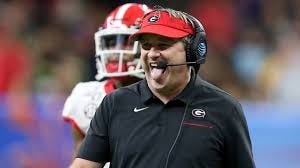

We start first with two men who represent the gold standard at their craft. The current “best coach” in college football, Kirby Smart, spent seven years as the defensive coordinator at Alabama. During this time, Smart established a reputation as an elite coach under the guidance of now-retired Alabama Deity Nick Saban. After Alabama, Smart took over a premier program at Georgia and through shear will and determination has crafted the Bulldogs into pound for pound the best program in the country. Like Smart, Grant’s career as a general did not begin with a leading role. Grant spent much of the early years of the American Civil War leading troops away from the main action of the War’s Eastern Theater. Instead, Grant built a reputation for himself in the West as a relentless and innovative general, culminating with his indelible capture of Vicksburg, Mississippi on July 4th, 1863. However, in a time of need, Grant was appointed commanding general of all Union forces, and his aggressive and unrelenting nature on the battlefield brought an end to the Civil War. For both men, there were hiccups along the way. For Grant, it was Cold Harbor, for Kirby, it was last year’s SEC championship game. Despite this, both men demonstrate an ability to overwhelm opponents through superior physicality and belief. Their excellence at the highest level is unquestionable.
Joe Paterno - Robert E. Lee
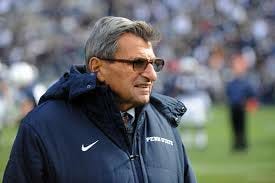
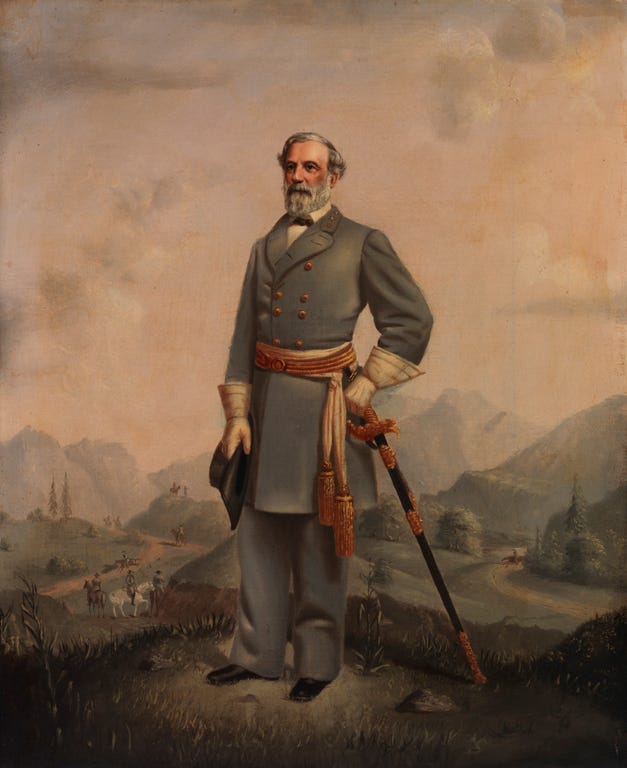
Both of these men had long careers littered with many successes and remain today revered by the descendants of the people they once led. Paterno won two national titles in the 1980’s and Lee strung together remarkable victories early in the Civil War against larger and better equipped Union forces, notably at Fredericksburg (1862) and Chancellorsville (1863). That being said, by the end of their careers it was clear that other coaches and generals were passing them by tactically. Perhaps most notably, despite their grandeur and success, both of these men suffer from questionable moral legacies. Whether it was Lee’s passive support of slavery in the American South or Paterno’s complicity in the Jerry Sandusky scandal, each man’s greatness as leaders of men has been overshadowed by questionable values.
Deion Sanders- George McClellan
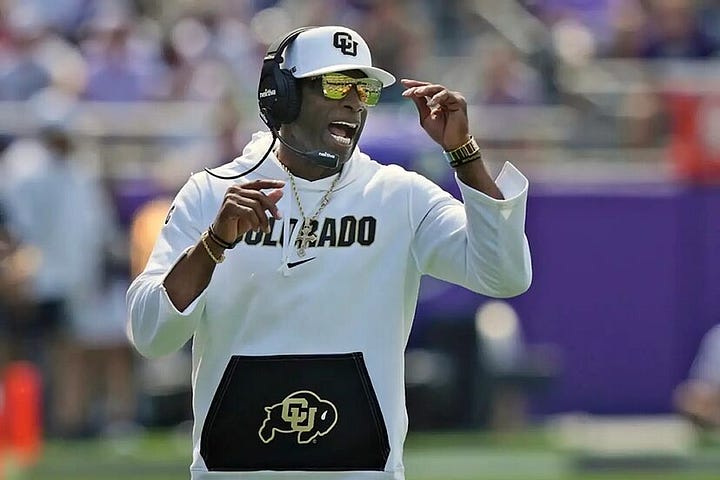

George McClellan was the commander of the Army of the Potomac from July of 1861 to November of 1862. McClellan initially reestablished a strong culture within the Union Army after some early humiliating defeats and was beloved by his men, who called him “Little Napoleon.” Despite some tactical successes, however, McClellan’s cautious nature during the Virginia Peninsula and Maryland Campaigns showed that he didn’t have the chops to contend with the stubborn Confederate army. While Sanders still deserves more time to establish himself at Colorado, there are many similarities here. Both guys are culture builders and generally well-liked by the men they serve. Sanders immediately changed the culture of a Colorado program that desperately needed it. However when it came time to play football, the results in Boulder were not there. Despite having some highly talented players, resources, and exposure, the Buffs could not beat a team that finished above .500 last season. In his first year, Deion seemed in over his head, just standing there there watching Stanford come back from 29 points at halftime or watching the Cougs put up 56 points on his defense with no fight. The whole thing was very reminiscent of when McClellan had reserve troops to commit at Antietam to win the battle and decided against it. Sanders will get a longer leash than McClellan got from Abraham Lincoln, but the clock is ticking for Sanders to start winning at Colorado.
Dabo Swinney - Jubal Early
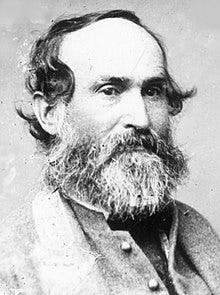
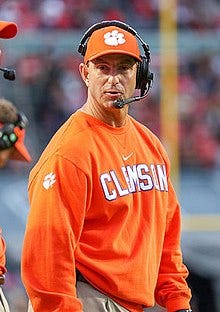
Jubal Early was a Confederate general known for his tactical successes and polarizing personality. He became one of Robert E. Lee’s most trusted generals and played a major role in most battles in the Eastern Theater. Robert E. Lee referred to Early as his “Bad Old Man” for his distinct personality, controversial decisions, and wholehearted love for the South. Dabo is a good comparison here - unapologetically southern and set on doing things his way (e.g. not believing in the transfer portal). Like Early, Dabo’s personality and approach is not for everyone, but he has coaching accomplishments to back it up and has proven his capacity to be a “bad old man.”
Dan Lanning - William Tecumseh Sherman
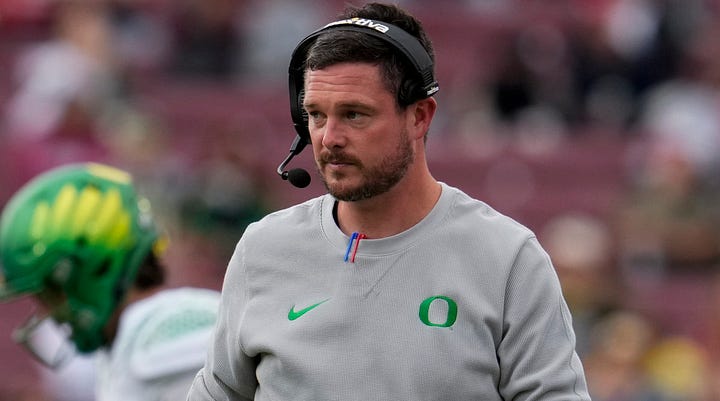
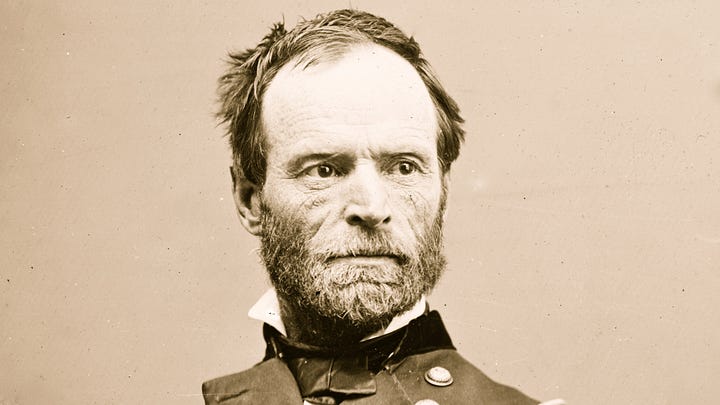
This one might be a reach because Lanning is still young and unproven, but we like the comparison of him to William Tecumseh Sherman. When the war began, Sherman was mostly an afterthought as a general in the Union army, however he built a close relationship with Grant during their campaigns in the West. Sherman is best known for his famous siege of Atlanta and March to the Sea: a scorched earth campaign through Georgia in 1864 to destroy the industrial base of the Confederacy and end the South’s will to fight the war. Sherman is still hated throughout the South for his decision to doll out a harsh physical and emotional toll on the Southern home front, but his efforts undeniably helped end the war and reunite our nation. Similar to Sherman and Grant’s relationship, Lanning established himself first as the defensive coordinator at Georgia under Kirby Smart. Since being hired at Oregon, Lanning has immediately proved that he is a special coach that has no problem imposing his will on his opponents. Oregon beat the brakes off of nearly every team they played last season not named the Washington and is now the face of college football in the west. Lanning’s “they’re looking for clicks, we’re looking for wins” speech to his team before playing Colorado is iconic, and one has to believe that Sherman gave a very similar speech before the March to the Sea in 1864.
Steve Spurrier -J.E.B. Stuart
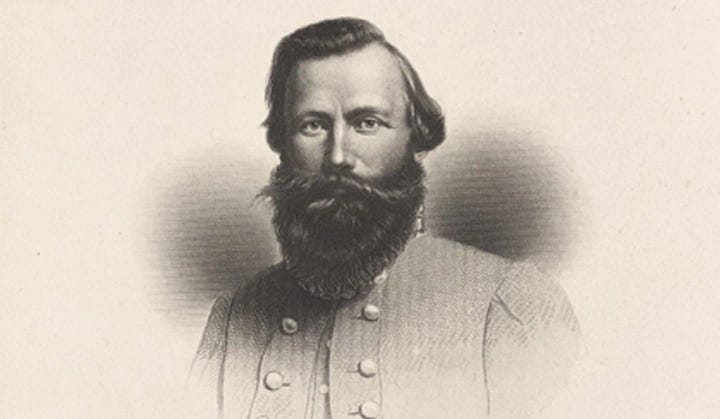

Taking another step back in time, let’s discuss two men who have the reputation of being aggressive, unapologetic Southern aristocrats. J.E.B. Stuart was Robert E. Lee’s trusted cavalry officer for most of the war. Stuart was known as the “eyes and ears” of the Confederate army, delivering reconnaissance on Union troop movements, attacking supply trains, and engaging with Union cavalry units. While considered one of the best cavalry leaders in American history, Stuart’s flamboyance and unpredictability sometimes harmed the Confederate war effort, particularly at the Battle of Gettysburg where he went AWOL from the Confederate army during their invasion of the North, leaving Robert E. Lee blind to the whereabouts of Union troops. Like Stuart, Ole Ball Coach Spurrier has and will always be unapologetically himself. Leading Florida in the 90s, Spurrier was sometimes flamboyant and controversial, but always an innovative and great head coach. Spurrier was a notorious trash talker and most of the time was able to back it up on the field, and we like to imagine Stuart was similar in his ways. Neither of these guys will be mentioned in the same tier as guys like Robert E. Lee or Kirby Smart, but their success, and innovative prowess was undeniable and invaluable.
Bobby Petrino - Dan Sickles
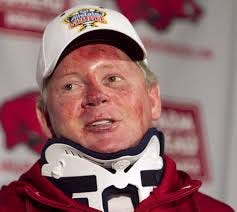
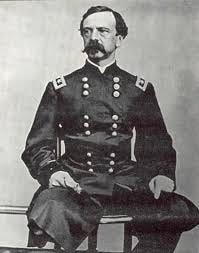
Of all the comparisons on here, this one might be the most uncanny. Both of these guys were leaders whose skills you can admire but also men you don’t actually want leading your troops into battle for a sustained period due to their reckless abandon. Dan Sickles was a Union general who was typified by his fiery personality and erratic behavior. He is most notable for two things: shooting the son of Francis Scott Key (shoutout Star Spangled Banner) for having an affair with his wife, and his actions as a general at Gettysburg. During the latter, Sickles unilaterally decided to move his corps out of their defensive position on July 2nd which was rash and disastrous, resulting in 40% casualties for Sickles troops. However, this action was also was key in stalling the Confederate Army’s advances in the Wheatfield and the Peach Orchard. Funny enough, Sickles lost his leg during this engagement on July 2nd after it was hit with an artillery shell and you can still see both his leg bones and the shell in question at the National Museum of Health and Medicine in Washington D. C. The controversial decision at Gettysburg was met with both scold and praise from the Union command, but earned him a Medal of Honor as he retired into the sunset of civilian life. Like Sickles, Bobby Petrino is also known for his aggressive style of play and erratic behavior both on and off the field. Petrino’s Louisville and Arkansas teams in the mid-2000’s were some of the most electric in college football, with dominant run games and crazy good offensive scheme. To this day, the legacy of these teams garner Bobby a ton of respect across the college football landscape and he keeps finding ways to parlay it into offensive coordinator positions at big time programs. However, like Sickles, Petrino is known for reckless and rather messy decision making. Petrino’s famous motorcycle accident in 2012 that led to the uncovering of a messy affair are what many people will remember him for. Although he didn’t lose his leg entirely, this incident coupled with Petrino’s on the field demeanor make his career trajectory eerily similar to Sickles’.
Billy Napier - John Bell Hood
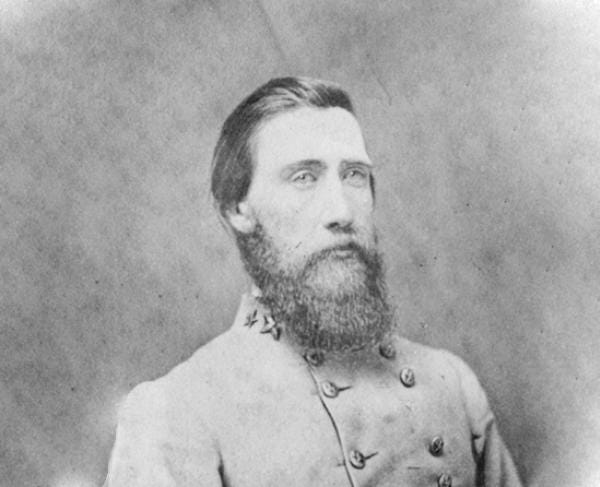
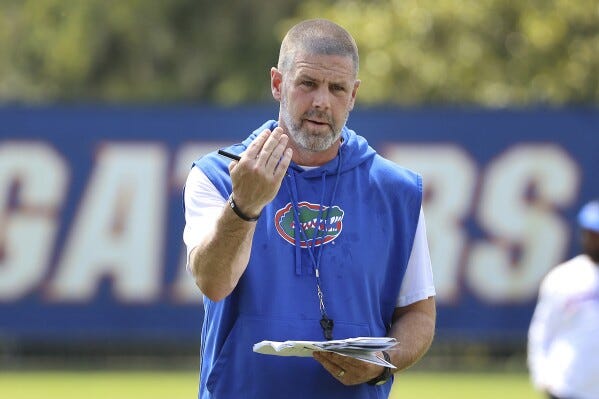
John “Sam” Bell Hood was another Confederate general who had a beloved reputation within the army during his time as a brigade and division commander. Hailing from Texas, Hood had a reputation of being a stout and prideful general who was trusted by Robert E. Lee in the Eastern Theater. The problem with Hood, though, is that he seemed to grow less and less competent as he moved up the officer ranks in the Confederate army. Hood became the commanding general of the Army of the Tennessee in 1864, and his poor tactical decisions when facing Sherman in the Atlanta campaign led to the fall of the city and the destruction of the South. We believe current Florida head coach, Billy Napier, is a great comp here. Just like Hood, Napier saw tons of success coaching at the lower levels of college football, most notably at Louisiana-Lafayette where he posted a 40-12 record. But as Napier has move up to his big-time SEC job at Florida, he has failed to deliver results and may have the hottest seat of any Power-4 coach this season. To make matters worse, the Gators face arguably the toughest schedule in college football this season, similar to how Hood was pitted against the relentless Sherman during his time with the Army of the Tennessee.
Butch Jones - Ambrose E. Burnside
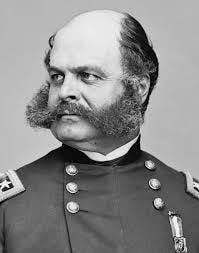

Our personal favorite. Ambrose Burnside, aside from having some of the most insane facial hair known to man, will always be remembered as being one of the most out of his depth generals of all time. Burnside was appointed as Commander of the Army of the Potomac after the failures of George McClellan, but only lasted one campaign at the helm for the Union army. Burnside is known for his disastrous leadership at the Battle of Fredericksburg in December of 1862, ordering Union troops to assault a heavily fortified Confederate position on the hills above the city, known as Marye’s Heights. Fredericksburg was a disaster for the Union army and is considered a low point for Union morale during the war. After being dismissed as commanding general, Burnside continued as a corps commander for the Union but is consistently remembered by historians for his mistakes augmented by a sense of irrational confidence. The above picture of Butch Jones is 100% what Burnside looked like during his failure at the Battle of the Crater in 1864, one of the most unique military operations in history. Like Burnside, Butch Jones has always been a coach that seems over his head at all times. Sure, Butch saw success as the head coach of Cincinnati from 2010-2012 which landed him a big time head coaching gig at Tennessee. There, Butch had a few solid, if not shaky seasons in 2015-2016. However, Jones ultimately suffered his Marye’s Heights incident short into his tenure when he was fired in 2017 after starting the season 0-6 in SEC play. Jones has retreated to the lower ranks, as Burnside did, and is now the head coach at Arkansas State, where he currently has an 11-26 record.
BONUS NON CIVIL WAR COMPARISON!
Mike Leech (RIP) - Chester Nimitz
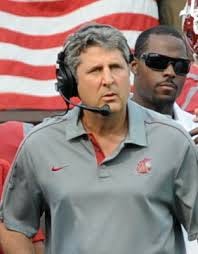
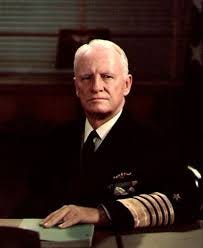
Ok, we couldn’t make a list like this without including the Pirate, Mike Leech. For Leech though, no Civil War comparison would do - he’s just too damn modern. Instead, we’ve gone all the way to the 20th century and lined Leech up with famed Admiral Chester Nimitz. Both of these men were eccentrics with distinct personalities that made them somewhat feared and made people somewhat uneasy. More importantly though, both of these guys were known for developing cutting edge tactics that pushed the very boundaries of their respective fields and made others change the way they viewed the game. For Leech, this was evident in the development and deployment of his innovative “air raid” offensive system which has influenced football at all levels over the last two decades. The air raid system pairs nicely with Nimitz’s developing and deployment of combined air, naval, and submarine warfare over the course of WW1 and WW2. While there will always be other leaders who are remembered more for winning championships, these two men will be remembered for changing the way people thought about and talked about the game. If the Navy calls their carrier strike groups “Nimitz Class” then us college football fans need to rebrand the air raid as the “Leech Raid.”
We could probably go on and on and I’m sure there’s some even better comps we haven’t discussed (Bill Belichick screams Napoleon btw), but we’ve both got to go put on our red white and blue and eat some hot dogs. We hope you’ve enjoyed this respite from our standard content - Mucc will be back in a few days with his Big 10 preview.
Until then, happy July 4th Everyone! God Bless America and God Bless College Football.
-Mucc and Brad





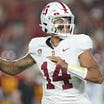
God Bless America and God Bless College Football.
🇺🇸🏈🧨